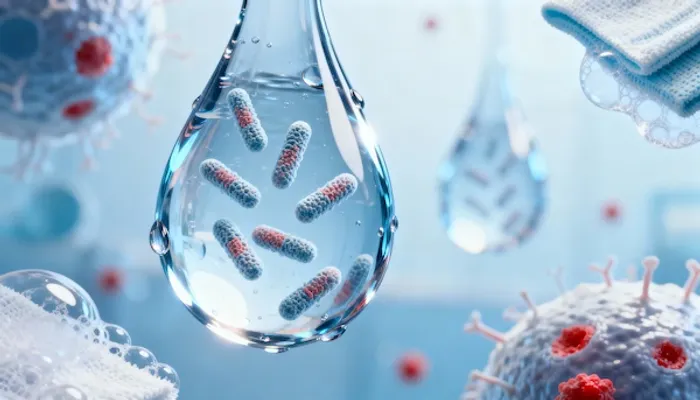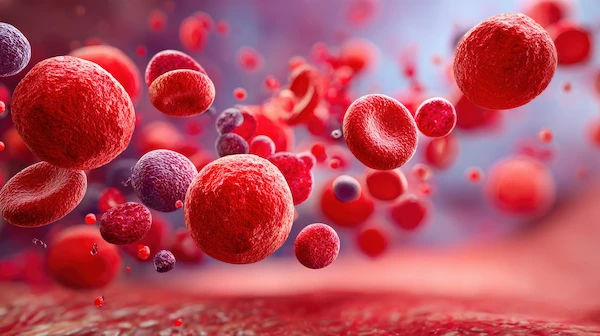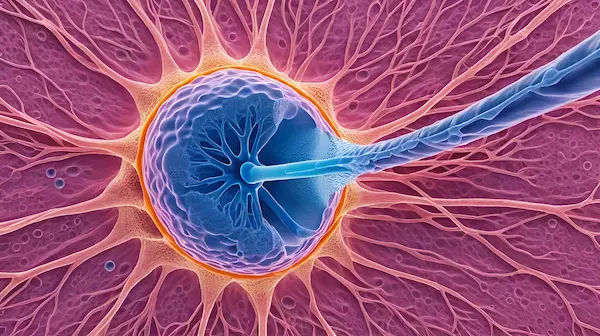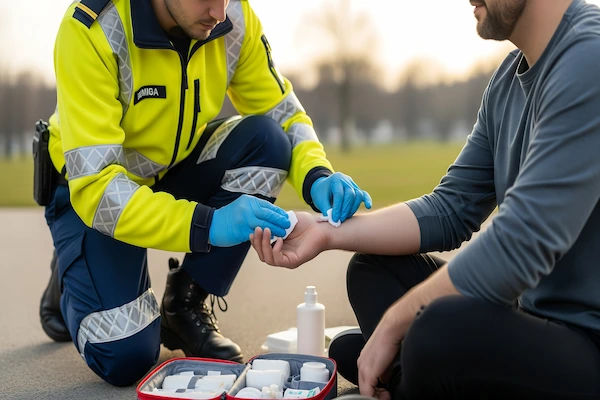Water-Borne Diseases You Should Know
Water-borne diseases like cholera, typhoid, and hepatitis A can spread through contaminated water. Learn their symptoms, causes, and prevention tips to stay safe and healthy.

Written by Dr. Vasanthasree Nair
Reviewed by Dr. Shaik Abdul Kalam MD (Physician)
Last updated on 13th Jan, 2026

Water is essential for life, but contaminated water can lead to serious illnesses. Water-borne diseases are infections caused by drinking or coming into contact with water that contains harmful bacteria, viruses, parasites, or chemicals. These diseases are common in areas with poor sanitation but can affect anyone if proper precautions aren’t taken.
In this article, we’ll discuss common water-borne diseases, their symptoms, causes, and prevention tips to help you stay safe.
Common Water-Borne Diseases
1. Cholera
Caused by: Vibrio cholerae bacteria
Symptoms:
Severe diarrhea (often watery and pale)
Vomiting
Dehydration (dry mouth, sunken eyes, low blood pressure)
Muscle cramps
Cholera spreads through contaminated water and food. Without treatment, severe dehydration can be life-threatening.
2. Typhoid Fever
Caused by: Salmonella typhi bacteria
Symptoms:
High fever
Weakness and fatigue
Stomach pain
Headache
Loss of appetite
Typhoid spreads through contaminated water or food. Vaccination is available for prevention.
3. Hepatitis A
Caused by: Hepatitis A virus
Symptoms:
Jaundice (yellow skin and eyes)
Fatigue
Nausea and vomiting
Dark urine
Stomach pain
Hepatitis A affects the liver and spreads through contaminated water or food. A vaccine can prevent infection.
4. Dysentery (Bacillary or Amoebic)
Caused by: Shigella bacteria (bacillary) or Entamoeba histolytica parasite (amoebic)
Symptoms:
Bloody or mucus-filled diarrhea
Stomach cramps
Fever
Nausea
Dysentery spreads through contaminated water and poor hygiene. Severe cases require medical treatment.
5. Giardiasis
Caused by: Giardia lamblia parasite
Symptoms:
Watery diarrhea
Gas and bloating
Stomach cramps
Nausea
Weight loss
Giardiasis spreads through contaminated water, especially in lakes or streams. It can last for weeks if untreated.
Consult a specialist for Personalised Advice
6. Cryptosporidiosis
Caused by: Cryptosporidium parasite
Symptoms:
Watery diarrhea
Stomach cramps
Fever
Nausea
Dehydration
This parasite is resistant to chlorine, making it hard to kill in swimming pools and drinking water.
How Do Water-Borne Diseases Spread?
Water-borne diseases spread through:
Drinking contaminated water
Eating food washed with contaminated water
Swimming in polluted water
Poor sanitation and hygiene (not washing hands properly)
Who Is at Risk?
You are at risk, if you are:
Children and elderly (weaker immune systems)
People with chronic illnesses
Travelers to areas with poor sanitation
Communities with unsafe water supply
How to Prevent Water-Borne Diseases?
To prevent waterborne diseases:
1. Drink Safe Water
Boil water before drinking (at least 1 minute).
Use water purifiers or filters.
Drink bottled water from trusted brands when traveling.
2. Maintain Hygiene
Wash hands with soap before eating and after using the toilet.
Avoid touching your face with unwashed hands.
3. Eat Safe Food
Wash fruits and vegetables with clean water.
Avoid raw or undercooked seafood.
Eat freshly cooked meals.
4. Avoid Contaminated Water Sources
Do not swim in polluted lakes or rivers.
Ensure swimming pools are properly chlorinated.
5. Get Vaccinated
Vaccines are available for diseases like cholera, typhoid, and hepatitis A. Consult your doctor if traveling to high-risk areas.
When to See a Doctor?
Seek medical help if you experience:
Severe diarrhea lasting more than 2 days
Blood in stool
High fever with dehydration
Persistent vomiting
Early treatment prevents complications.
Conclusion
Water-borne diseases can be dangerous, but simple precautions can keep you safe. Always ensure your drinking water is clean, practice good hygiene, and seek medical help if symptoms appear.
If you suspect a water-borne infection, consult a doctor immediately. You can book a consultation or schedule tests through Apollo 24|7 for quick and reliable healthcare support.
Consult a specialist for Personalised Advice
Consult a specialist for Personalised Advice

Dr. Vivek D
General Physician
4 Years • MBBS
Bengaluru
PRESTIGE SHANTHINIKETAN - SOCIETY CLINIC, Bengaluru

Dr Syed Mateen Pasha
General Physician
2 Years • MBBS
Bengaluru
PRESTIGE SHANTHINIKETAN - SOCIETY CLINIC, Bengaluru

Dr. Anand Ravi
General Physician
2 Years • MBBS
Bengaluru
PRESTIGE SHANTHINIKETAN - SOCIETY CLINIC, Bengaluru

Dr. Syed Ismail Ali
General Practitioner
7 Years • MBBS
Hyderabad
Apollo 24|7 Clinic, Hyderabad

Dr. Harshendra Jaiswal
General Physician/ Internal Medicine Specialist
12 Years • MBBS , MD (General medicine)
Kolkata
108 DHANA DHANVANTARI Clinic, Kolkata
(25+ Patients)




